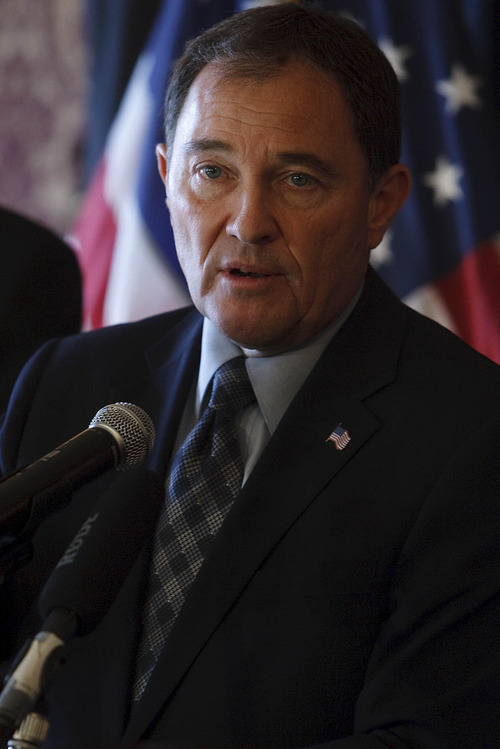This is an archived article that was published on sltrib.com in 2011, and information in the article may be outdated. It is provided only for personal research purposes and may not be reprinted.
Last week, 30 of my fellow governors and I released a report detailing more than 30 ways Medicaid can be modernized to provide better service at a lower cost ("A New Medicaid: A Flexible, Innovative and Accountable Future," Republican Governors Public Policy Committee Health Reform Task Force, Aug. 30).
The thrust of our report: Real solutions require state flexibility.
Medicaid is a state budget-buster. Without significant modernization, Medicaid will become so expensive that it will undercut other critical needs like education and infrastructure.
Clearly, Medicaid can be a valuable medical program for our neediest Utahns. I am not disputing its value, particularly for children. But it is essential that Utah obtain the most value for these critical dollars. To achieve that, states need a greater, more flexible role.
As the report highlights, "When it comes to modernizing Medicaid, the term 'partnership' between the states and federal government is a misnomer. Rather than acting as a partner, the federal government dictates and micromanages rules and regulations that, in many cases, impede a state's ability to innovate and create programs that improve the health of its citizens and control costs."
An example of this dysfunctional partnership occurred just over a week ago. Back in September 2008, Utah requested allowing some families the option to use Medicaid dollars to help pay for their choice of a family policy through the private market, instead of Medicaid enrollment.
After three years of inaction and delay, the federal government issued a denial letter — purportedly because families might make a poor choice if this option were available.
Nothing is more absurd than a federal bureaucrat delaying a reasonable state request for three years, then finally denying it, based only on that bureaucrat's opinion of what is right for Utah, practically treating Utahns like indentured servants. Our citizens deserve better. And those who need Medicaid deserve better.
When it comes to health care, the federal government does not know best. States do because states are closer to the people and can do more with less, if we have greater flexibility and fewer federal strings.
We hope for a better outcome with another Medicaid request submitted in July. Essentially, that request would allow us to modify how we pay providers. Utah wants to pay for value instead of volume, the goal being a healthier population at a lower cost. Local providers are supportive, and it makes sense for Utah, but the federal government nevertheless requires us to pursue a lengthy and uncertain approval process.
Medicaid reform is just one front where Utah is leading the way, but we have a long way to go. Simply put, state flexibility is key. On Sept. 30, I will convene a health-care summit where I encourage all stakeholders to establish a framework for future reform (utahsummit.com).
But the federal government and its agencies must now ensure state flexibility to address this critical issue by giving serious consideration to Utah's proposal, changing law where necessary and overhauling their paradigm of federally dictated solutions to state-based challenges.
Gary R. Herbert is governor of Utah.



